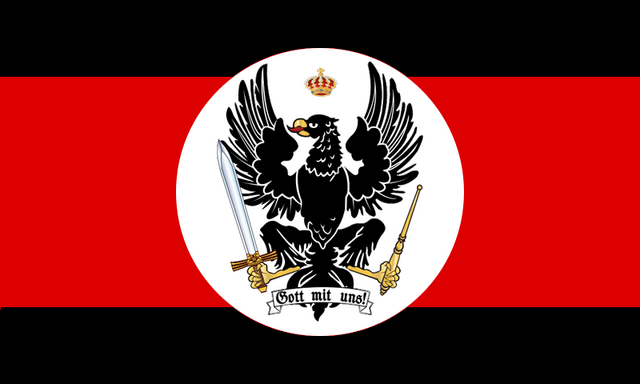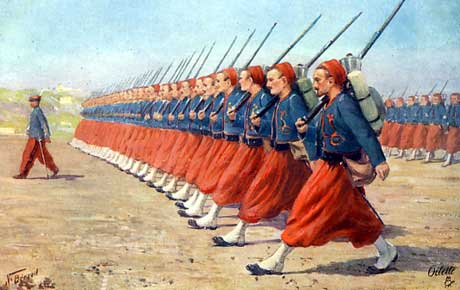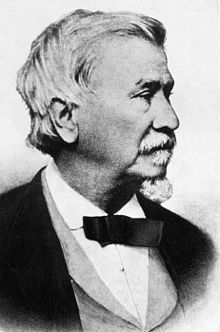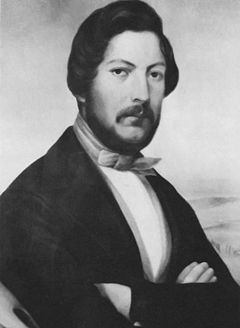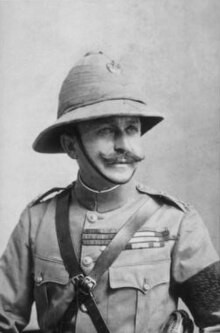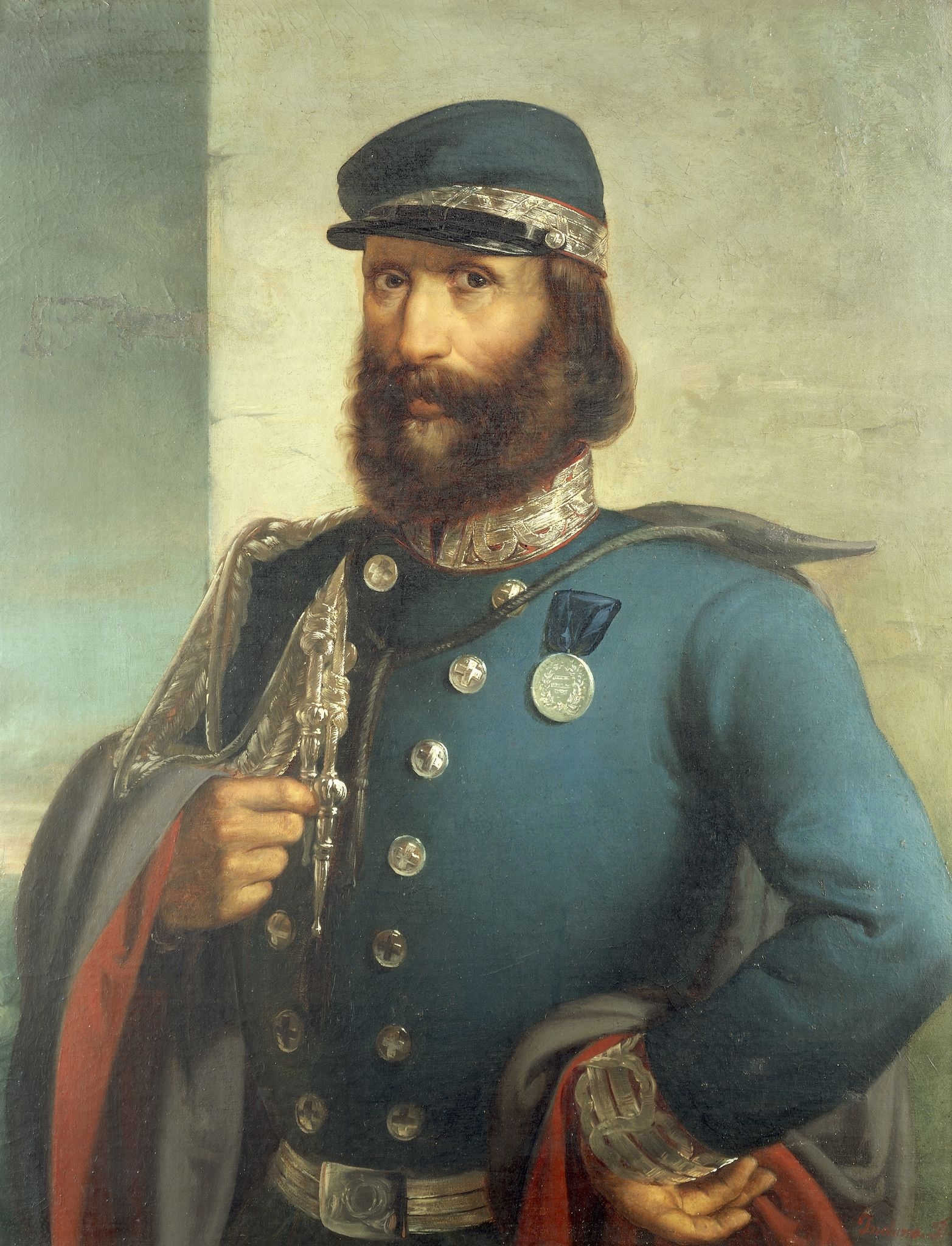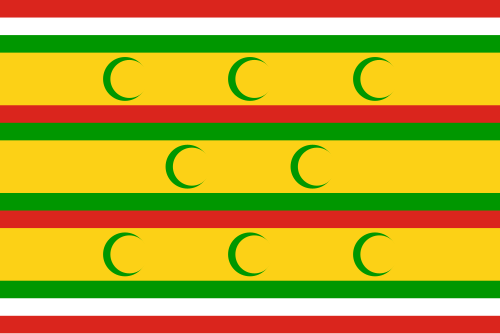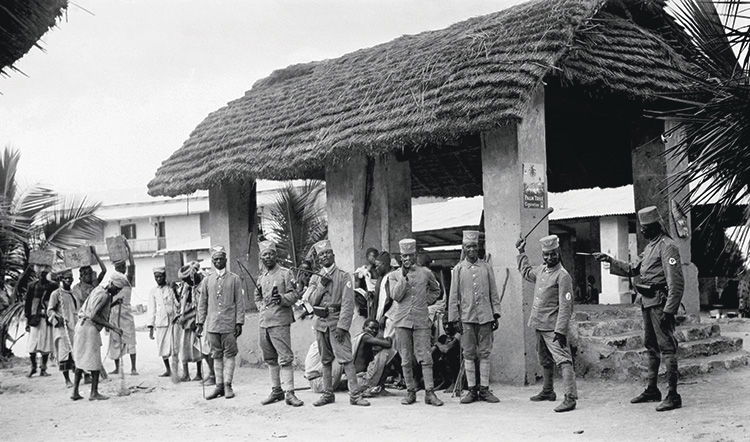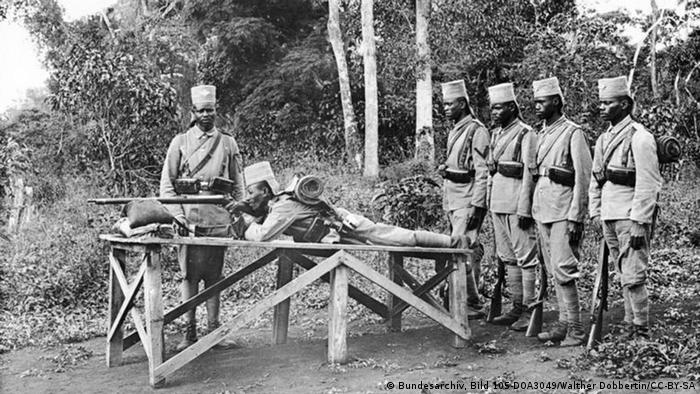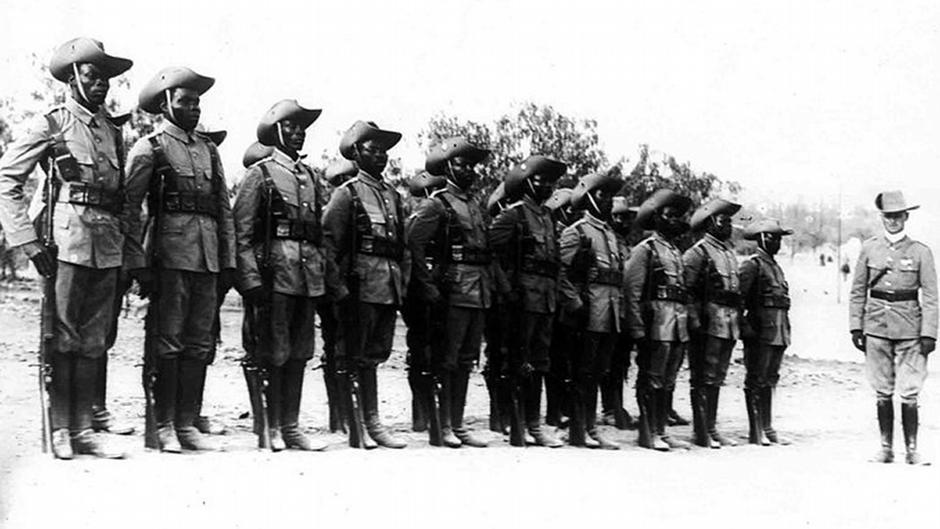Much of this is based on Zoidberg's great 1.0 two guest chapters on Africa. It, however, becomes quite different by the end of the chapter, as you'll soon see.
CHAPTER 38
THE RACE FOR AFRICA
"Without any doubt the Franco-Spanish Empire is the Third Rome. [....] During the Great Wars of the Empire under Caesar Napoleon I, France proved herself by conquering nation after nation, even when she was against all the odds and facing mighty Britannia. [....] Now, thirty years after the wars have ended, Britannia is a dusty history book and the Franco-Spanish Empire is poised to dominate the dark continent of Africa. If the Empire could have Europe under her heel, why not the Dark Continent? [....] The young Caesar has many years ahead of him, and may he bring glory to the Empire forever more!"
-Excerpts from the article "The Rise of the Empire Across the Globe" by French writer, novelist and journalist Octave Louis Martel, Imperial Times of Paris, July 19th, 1845
During the waning days of the
Pax Napoleonica, just before Caesar's Invasion of Egypt and the Levant, the great powers of Europe, making new breakthroughs in technology, science, and general industrialization, were determined more than ever to conquer new lands in Africa, Asia and other "exotic" locales and to bring European culture and religion to these places while at the same time taking diamonds, gold, crops, and furs from them. These European empires had particularity desired a new dominance over Africa ever since the 1832 World Congress, when it was agreed that the United Empire of France-Spain would be given dominance over Saharan Africa, while Prussia, a rising power, would hold dominance over Sub-Saharan Africa. These points were agreed on by all of the major powers of Europe and the Americas, and at the time they seemed fair and forthright.
It reality, these assurances were over-generalized and rather vague. While all of the world powers observed these accords, they were not viewed all that seriously due to the fact that European nations at the time were not entirely capable of colonizing the depths of Africa. This was due to the lack of immunity against diseases, horrid climates, hostile and unknown tribes, and many other factors. All that the leaders and emissaries did at the Congress to formalize these borders was to draw them on a map of Africa and call it a day. A line was drawn at the 5th Parallel North and at the 10th Parallel South. Above the 5th parallel North was marked “French Africa” in several different languages, while below down to the 10th Parallel South was marked “Prussian Africa”, again in several different languages. The so-called "Prussian Line" stopped at the 10th Parallel South as Portuguese and Dutch colonies were already located below, and as a result, these nations were tacitly given influence over this region of Africa. Meanwhile many a nation, be they a major or minor power, hoped to use these vague assurances to their advantages by slipping in their own African colonies sometime in the future. However, this was merely Day One of the Race for Adfrica. Colonization would not be fully under way for quite some years to come.
FRANCE-SPAIN AND PRUSSIA, THE ARCH RIVALRY OF THE RACE FOR AFRICA:
The two main powers throughout the Race for Africa were the Franco-Spanish Empire (after 1896 the Empire of Europa) and the Kingdom of Prussia (after 1850 the Nordreich). In 1832, France had owned quite a bit of land on the coast of North Africa, while Spain owned at least one port. In 1838, when France and Spain officially went into a personal union and became the United Empire of France-Spain with Napoleon II's marriage to his Spanish consort Eugenie, these African holdings officially became Franco-Spanish colonies. Prussia was given the Spanish islands of Bioko and Annobon as a gesture of goodwill from France. It was just the beginning of what would become an impressive African holding for the Hohenzollern-Wettins.
Thus Prussia, as a new power on the world stage, was especially eager to establish a strong foothold in Africa after 1832. Faced with being cramped into the middle of Russia and the United Empire, Prussia saw African expansion as its route to fame, fortune, and respect. During the late 1830's they did just this. On the coast of Western Africa, along the Equatorial region, Prussia founded the colony of Friedrich-Wilhelmsville
(OTL's Libreville, Gabon) in 1836. This would be promptly followed by the foundation of Neue Berlin
(OTL's Port Gentil, Gabon) in 1837. The Franco-Spanish Empire took notice of this, and most certainly wanted to one-up their new Prussian rivals in Africa. However the Franco-Spanish Empire was already the most massive globe-spanning empire since the time of Genghis Khan, with most of Europe, South America, the Indian Subcontinent and Australia under their control. As a result, Caesar Napoleon II decided to take the colonization of Africa slowly.
Then the year 1838 came and turned Europe's attention away from Africa, albeit temporarily, due to the assassination of the Austrian Emperor and the subsequent crackdown on anarchists. With Austria-Hungary in due time to come into a personal union with France and Spain thanks to the Second Treaty of Vienna (1836), the history of European colonialism would be changed forever. In the meantime, France still had colonizing Africa on its agenda. In 1841, two new Franco-Spanish cities were founded in North Africa, just under the Kingdom of Morocco. They were Laâyoune, or El Aaiún in Spanish, and Cape Napoleon
(OTL's Cape Bojador). These colonies were bilingual, with both French and Spanish as official languages and with colonial officers from both nations in charge of the colonies. Many more future Franco-Spanish colonies would contain an equal influence of French and Spanish culture, with Austrian, Hungarian, Bohemian and Slavic culture coming into the mix after the formation of the Empire of Europa. All these European cultures would in turn mix with the various native African cultures. Cape Napoleon became the crown jewel of the new colony of Boujadour.
Franco-Spanish Zouave Infantry
on parade in Boujadour
Meanwhile, Prussia continued to found more outposts, including Neue Potsdam
(OTL's Doula, Cameroon) in 1841, Von Zietensville in 1842
(OTL's Beua, Cameroon), and Stadt von Afrika
(OTL's Omboue, Gabon) that same year. It was also during this time that Prussia would begin to have her eyes set on the large and unexplored Congo region. However, the desolate interior of the Congo would not be colonized for years to come due to several deadly diseases which thrived in the jungle, along with the presence of hostile tribes. Still the land was recognized as Prussian, and Prussian-backed expeditions would be carried on and along the Congo River sporadically during the 1840s and 1850s. The most famous of these expeditions was the 1854 expedition by explorer August Kappler, in which his expedition of 500 men, mostly Prussian but also containing some other Nordic volunteers (including 50 Finns far out of their natural habitat) successfully traveled up the Congo River and back to Neue Potsdam. Another expedition, this time smaller, was made by Kappler in 1861, which a few months after departing from Neue Potsdam mysteriously disappeared. It was speculated that the party was attacked and killed by hostile natives, though there was never any evidence to say exactly. Some evidence gives credence to the theory that the same tribals who possibly murdered the 1861 expedition also were the ones whom Dr. Charles Marx lived with during his own 1850 expedition.
One of the most important events in the early days of the Race for Africa came in 1849. With the Ottoman Empire in turmoil and fighting the Balkan Wars, the Franco-Spanish Empire decided it was high time to conquer Algeria, an Ottoman dependency the Dual-Monarchy had long had its eyes on. The invasion began on August 12th, 1849 with multiple troop landings across the Algerian coast targeted at Algiers and Oran, with the Franco-Spanish Empire not even bothering to issue a formal declaration of war. The invasion was commanded by generals from both nations: the French Count de Ghaisnes de Bourmont and the Spanish Duke of Valencia Ramón María Narváez. They both proved themselves excellent commanders during the war, with their use of scorched earth tactics working amazingly well against the Arab defenders. These tactics greatly raised the moral of the Franco-Spanish soldiers, and made quite a name for the two generals back home. The war would last only three months, with the conflict over by Christmas. It was this conflict that likely emboldened Caesar Napoleon II to invade the entire Ottoman Empire just a few years later, finally ending the
Pax Napoleonica.
Imperial troops push forward in Algeria
By the beginning of November, most of Algeria had been overrun by the Franco-Spanish invaders, and the Ottoman provincial ruler Hussein Dey, seeing no way out, surrendered on November 13th, 1849. The Treaty of Oran was signed a day later, and established Algeria as a Franco-Spanish colony. The Ottoman Sultan Abdülmecid I was not pleased, as he was already on the verge of losing land in the Balkans. Nevertheless, he had no choice but to comply with the treaty, as he had no real way of regaining Algeria without simply asking for Caesar to come smack him from power and end the Caliphate forever (something which would ironically later happen anyway) Franco-Spanish settlers would come gradually to Algeria, with Franco-Spanish presence and culture becoming noticeable by the mid-1860's.
Back in Europe, in late 1850 the Nordreich was born, encompassing not only Prussia, but also Saxony, Poland and Finland. While all this was going on, Europe still had her eyes on Africa. With its new European empire secure, the House of Hohenzollern-Wettin became even more enthusiastic to colonize more land in Africa, and they made no secret of it. These new countries under Nordic rule would bring new wealth to the country and speed up their colonization of Africa. A new wave of future settlers would also bring to these colonies in the middle of Africa a mix of North German, Polish and Finnish culture. Between both the Europan and Prussian Empires, there would be a very unusual and interesting mix between the European and African cultures.
When the 1860s rolled around, it was clear to all that the Franco-Spanish and Prusso-Nordic rivalry that started in the 1830s was beginning to intensify greatly. This competition between the two multi-ethnic superpowers would later come to be known simply as "The Great Game"; a term coined by English writer, journalist and politician J.R. Kipling in 1894.
OTHER POWERS:
Aside from France-Spain and Prussia, the Kingdom of Holland was increasingly becoming a rising power in its own right, having colonized most of Indonesia (and claiming the whole region), New Guinea and dipping into Indochina. In Africa, the Dutch had one sole possession, the Cape Colony, which expanded rapidly during the late 1830's through to the 1850's. It should also be noted that by the late 1840's, Holland was officially no longer a puppet state of France (though it was still a close friend and ally), and was very much on its own. This new independence from French control allowed the Dutch Empire to grow even more than it already had been. By 1850 the Cape Colony was one of the most prosperous Dutch colonies. The residents of the Cape Colony were an ethnicity known as Afrikaners or Boers, and were the the descendants of Dutch Calvinists, Germans, French Huguenots, Frisians, and minor numbers of other Europeans who settled in the region. Interestingly, American protestants who feared the growth of the AFC Church in the Republican Union also arrived in the area.
The Boers played a large role in the expansion of the Cape Colony along with the mother country, with several new cities being founded by the Boers, sometimes in cooperation with new Dutch settlers. One of the most prominent Boer leaders was Andries Pretorius, who was instrumental in the expansion of the Cape Colony through the moving of settlers into the frontier and the foundation of new cities. These new cities included a new capital of the colony named Lodewijksville
(OTL's Johannesburg), said city named after King Louis I of Holland, Pretoria (named after Pretorius himself), Bloemfontein, New Friesland
(OTL's Kimberly), among others. The rather sporadic conflicts with local tribes were either minimal or easily won, and the Cape Colony became so large it was officially reformed into "The Colony of Dutch South Africa" ("De Kolonie van de Hollands Zuid-Afrika" in Dutch) in 1859, with Pretorius as its first governor. While the Boers continued to have close ties with their mother country over the decades, during this time the Boers would begin to develop a new identity and national consciousnesses. By the 1860's, greater calls were being made from the Colonial Parliament in Lodewijskville for some sort of autonomy from the mother country, with some radicals calling for all out independence. Still, most were satisfied with the relationship between master and colony, so things stayed as such for the immediate future. Expansion would continue in the future as well, bringing the Boers into inevitable conflict with other local tribes, in particular the Zulus.
Andries Pretorius, the first Governor of Dutch South Africa
Boer settlers in the interior of Dutch "Zuid-Afrika", circa 1840
In terms of other nations, the Portuguese Confederation had already owned colonies in East and West Africa for centuries, while Denmark-Norway had owned the Gold Coast ever since it had been given it during the division of the British Empire at the 1826 World Congress. The Kingdom of Denmark--now under King Frederick VII after the disastrous reign of his father, Christian VIII, that saw an end to the Kingdom of Denmark-Norway-- finally turned a new page and began being much more successful in the Gold Coast Colony, founding the city of New Aarhus in 1848 for example. While France-Spain and the Nordreich would be the dominant forces in the Race for Africa, a number of other European and even North American nations would play a role of their own in due time.
A French political cartoon from around 1885, commenting on the Nordreich (personified by Chancellor Otto Von Bismark) and its increasingly aggressive and competitive attitude in the Franco-Nordic Great Game, with the rest of Europe looking on.
"I have thought some more since then and I have read carefully the different treaties between the European powers, themselves and the natives, and I have seen that we do not intend to free, but to subjugate the people of Africa. We have gone there to conquer, not to redeem. It should, it seems to me, be our pleasure and duty to make those people free, and let them deal with their own domestic questions in their own way. And so I am an anti-imperialist. I am opposed to having the eagles--be they Franco-Spanish, Nordic, or American--putting their talons on any other land. The same goes for any other European power."
Virginian Great American War veteran, author, humorist and political theorist Samuel Clemens in his essay, "The Emperor's Folly", first published in Ireland while living in exile, December, 1889
One of the most important sagas of the Race for Africa was the Great Game, a period of intense colonial rivalry across the world between the two greatest European superpowers, the United Empire of France-Spain and the Nordreich. The Great Game mostly took place in Africa, but also in Asia and other places as well. The Great Game continued into the late 1860s and 1870s, with things really heating up in the early and mid-1870s. The Franco-Spanish Empire continued to establish more cities and trading posts along the northern coast of Africa, and in 1873 took their expansion one step further. France-Spain embarked on a large-scale military expedition in the Horn of Africa, in an effort to finally have a power-base in the region; conquering many of the northern Somali Emirates as well as the Yemeni islands of Socotra. These colonies would increase France-Spain’s trade power in the Indian Ocean.
Meanwhile, the Nordreich was also flexing her muscles on the African continent. With new advancements in medicine and weaponry coming in the late 1860s and early 1870s, the Kaiser finally felt confident enough to colonize deeper into the Congo. So, with new powers at its disposal, the Reich would keep on pushing into Africa, colonizing the land around the basin of the Congo River by the foundation of new cities, military bases and trading posts. Fighting against restless tribes also occurred, but the odds were all in the Reich's favor due to their more advanced weaponry. By 1875, a great deal of land around the Congo River basin was colonized, with the lion's share of the Nordic Congo being colonized and settled by the mid 1880s. The colony of the Prussian Congo (which included, oddly enough, some outer regions not a part of the Congo region) would not be fully colonized by the early 1890s. However some problems remained during the over twenty year colonization process, such as hostile tribes continuing to harass the Nordic settlers and adventurers, making colonization a bit more difficult than previously thought, though not by that much in the long run.
Nordic troops slog through the murky waters of the Congo
However, one native African kingdom would continue to be particularly troublesome. This was the Yeke Kingdom in Katangaland, led by their persistent and stubborn founder and ruler named Msiri, a man who had embraced modern weaponry and tactics. When the Reich and the Yeke first butted heads in 1886, the Nords were at first at a disadvantage due to a shortage of supplies and manpower and the shock of the Yeke using their own tactics and weapons against them. The Yeke Kingdom fiercely fought off the sporadic Nord incursions, brutally massacring any European who dared step foot within the kingdom. The Nords tended to stay out of Msiri's way for this reason, but all this changed three years later in June of 1889, when a great number of reinforcements of settlers and soldiers arrived to eventually pacify the region. Soon after, a new army was formed from said reinforcements under the Austrian-born adventurer and mercenary Rudolf Carl von Slatin. Within a few month’s time, Slatin’s Colonial Army of Katangaland, with the help of a some Portuguese volunteers, finally killed Misiri in battle at his capital of Bunyeka. Katangaland was finally open for Nordic settlement. Small areas of the region would also be colonized by the Portuguese Confederation, which sought to connect their colonial holdings in the eastern and western coasts of Africa inland.
Msiri, founder and ruler of the Yeke Kingdom
Carl Rudolf Von Slatin
Prussia also began to colonize some land in south-western Africa beginning in 1874, just above Dutch South Africa. After a sizable number of towns were founded, the colony was dubbed Kaiser Wilhelmsland in 1881, and a new city and capital for the colony was founded. This new city was simply named Port Wilhelmsland
(OTL's Walvis Bay), and would become a major commercial hub in the coming years. While this was going on, the Dutch were not pleased that the Prussians were colonizing land seen as in their sphere of influence. Amsterdam and Lodewijksville sent letters of protest, but there was little they could do, and eventually came to an agreement with Prussia as to the borders of the the colonies in 1890, with relations between the two nations improving greatly as a result.
THE ITALIANS GET THEIR SLICE OF THE AFRICAN CAKE:
The Italian kingdoms were the first of the few minor European nations to get a piece of Africa for their own. Specifically, the Kingdom of Italy got theirs in 1867, when, as an act of goodwill and to keep the Kingdom on their side, the Franco-Spanish Empire gave the Kingdom of Italy permission to colonize some small land in north-west Africa, near some of France-Spain's existing outposts. This land was dubbed Italian Senegal in 1870, and while it was the Kingdom of Italy's only colony, it would prove a prestigious one at that due to the large amounts of gold and other valuable trade items the colony contained, making the Kingdom of Italy's coffers overflow. Senegal would be completely colonized and have finalized borders by 1888, all the while proving a worthy investment.
In 1873, the Kingdom of the Two Sicilies, somewhat jealous of their northern neighbor's new colony, wanted to get in on the game as well. They got just that when the Franco-Spanish Empire, not wanting to see the other of the two major Italian puppet states feeling left out, allowed the Two Sicilies to embark on a military expedition against the Swahili City states, also due to the fact that the Empire had no interest at all in the region and would much rather have the land in the hands of an ally than a rival or potential enemy (in other words, the Reich). France-Spain would allow the Sicilian military to handle the expedition on their own, with France-Spain also giving a good deal of support in the form of weapons and volunteers. After some brief preparation, the Swahili City states finally came under attack on November 1, 1873. A rising Sicilian general by the name of Giuseppe Garibaldi led his troops, along with several French and Swiss regiments, on an attack of a great number of southern Swahili city-states. The war was a quick and easy one due in part to the power of surprise the Sicilians had over the African natives, lasting only two months and ending on January 3, 1874. The war, while brief, brought great fame to Garibaldi, who would become known as the "Lion of Africa." He would later serve as the Prime Minister of the Two Siciles, further cementing his status as an iconic figure.
Meanwhile, of the nations in the region of the southern Swahili states, the Sultanate of Zanzibar was one of the only nations of Africa to survive colonization without being fully colonized, sharing this distinction only with Morocco and Ethiopia. The Sicilians decided a protectorate and trade agreement was more efficient there than outright direct rule.
"The condition of a protected dependency is more acceptable to the half civilized races, and more suitable for them than direct dominion. It is cheaper, simpler, less wounding to their self-esteem, gives them more career as public officials, and spares unnecessary contact with white men."
- Giuseppe Garibaldi
Giuseppe Garibaldi, "The Lion of Africa"
Flag of the Sultanate of Zanzibar
THE DUTCH-ZULU WAR:
While Dutch South Africa continued to expand, conflict inevitably came between the Afrikaner settlers and the Zulus, one of the most influential native African nations in the region. At first, in the mid to late 1870s, conflict only came in the form of skirmishes, but things finally escalated on July 27th, 1880. Accounts of what exactly happened vary, but all that is known is that a tribe of Zulu warriors, perhaps acting without permission, attacked an allegedly defenseless Boer caravan. Who instigated the fight would never be known, but the news that the Zulu warriors massacred women and children infuriated the government in Lodewijskville. When the Colonial Parliament asked the mother country for permission to "rid South Africa of the Zulu nation once and for all", the young King Louis II happily went along, eager to expand the Dutch Empire under everyone's noses. The Kingdom of Holland declared war on the Zulu nation on August 2, 1880. While the Zulus under Chief Cetshwayo kaMpande put up a good fight, proving quite a thorn in the Dutch Expeditionary Force's and local Boer armies' sides, they were simply no match for a technologically advanced European army, as was the case with so many colonial wars. The war reached a climax on April 28, 1881, when the Dutch, having occupied most of the Zulu kingdom, reached the final outpost of Zulu resistance and wiped out the last Zulu army in less than an hour. A new town was founded on the site of battle named "New Groningen"
(OTL's Durban), and that final confrontation became known as the Battle of New Groningen as a result.
The Zulus attack the Dutch and Boer Armies during the Battle of New Groningen
Cetshwayo and most of his family were imprisoned by the Dutch Army soon afterwards, dying one by one under mysterious circumstances. The Dutch would continue to expand into the heart of Southern Africa during the 1880s, coming into conflict with more tribes and later causing a noticeable tension between the Boers and the subjugated natives, the latter who would eventually find themselves as second class citizens in their own land.
OTHER POWERS:
The Portuguese Confederation's main goal in the Race for Africa was to make the push from the east coast to the west coast of Africa, and to build "a railroad from Luanda to Maputo". After gaining enough resources to do so, they starting construction on the Luanda Railway beginning in 1883. Things went well for the most part, with most tribes falling into line quickly, except for the Yeke Kingdom under their ruler Msiri. However, after his kingdom collapsed in 1889 at the hands of the Prussians, the Portuguese continued to expand into small areas of Katangaland, reaching from coast to coast by Christmas of 1889. With the tribes finally out of the way, construction of the railway was completed in 1890. While Portugal was an afterthought in Europe for the last two generations, their colonies were still fairly successful for a nation of such stature.
Outside of Portugal, Denmark continued to expand in the Gold Coast region. In 1871 the Danish West Africa Company (
"Dansk Vestafrika Kompagni" in Danish) was founded in an effort to gain more profit from the colonies goods, a scheme which went quite well. The Danish continued to expand the colony of Danish West Africa deeper inland during the 1880s, and even went on to conquer the Nigerian region by 1890.
Meanwhile, during the last 20 years that Europe was busying itself colonizing Africa, North America, too, was sneaking its way into the Dark Continent. In 1865, famed black AFC minister and revolutionary, Reverend Aaron Burr Douglass, would create the African Fatherland Movement, desiring to see his people, now freed from Southron slavery, return across the waters of the Atlantic to Africa and "preach the Word of God and the Message of the Prophet Burr to every tribe and people of the earth." Douglass would finally gain support from the the AFC Church and the Council of Jehovah in 1869, and the Church provided several million dollars and supplies to start out, while several black AFC Volunteer Brigades shipped out as the "Free Army of Lincolnia." With Douglass as their Moses, thousands of blacks would begin crossing the Atlantic to West Africa. Douglass slowly found himself ironically battling African tribes like the Asanti west of the Danish Gold Coast and soon founded himself founding the city of New Philadelphia
(OTL's Monrovia) in mid 1870 as a capital for his new realm. Following several more battles with the natives there, as well as a brief skirmish with Danish troops, the "Republican Union of Lincolnia" was officially recognized by the Republican Union, its recognition being the last act of President McClellan. In his honor, another city was founded and named McClellanburg
(OTL's Buchanan). By the end of the century, the other major city to sprout up was Douglasstown (OTL's Greenville) following Douglass's death. Douglass had ruled as "President of the Republican Union of Lincolnia" but had mostly dictatorial powers. Even so, Douglass was shockingly noble in most of his policy-making, except a total ban on Irish and Slavic peoples from ever entering the RUL. He was succeeded in office after a "free and open election" by Alvin Thomas Wayne, who began ruling with a much more heavy hand and outlawed all parties aside from his own "Fatherland Front." He then proclaimed himself the "Prophet of Africa and the 12th Imam, Uniter of Christianity and Islam" and founded the "African Fundamentalist Church" as a bizarre cross between the AFC Church of Burr and Islam. This led to the bloody Lincolnian Civil War of 1891, which saw the Fatherland Front against native-born African "heathen Inferiors" and slaughter them by the thousands, as well as murdering any citizens who refused to agree that Wayne was a new prophet. This ethnic cleansing went relatively unnoticed in the rest of the world but absolutely ravaged Lincolnia. However, with the rise of Custer and the Manifest Destiny Party back in North America, the Union Army would arrive in early 1893 and took control of the situation, ousting Wayne and banning the Fatherland Front. The AFC Church then excommunicated Wayne and officially condemned him to Hell shortly before his execution by firing squad on November 9, 1893. The Union government then took full control over Lincolnia as a Union Territory, ending its troubled period of independence.
Lincolnian troops pose for a photo amidst the Lincolnian Civil War (circa 1892)
Lincolnian troops practice aiming during the Lincolnian Civil War
An American officer stands at attention with rebel forces shortly after they seized New Philadelphia from Wayne and the Fatherland Front
Union troops fight Fatherland Front troops in Lincolnia
Lincolnians salute an image of President Custer
Meanwhile, the Confederation of the Carolinas--which had been given the Newport News and Norfolk area Virginian port cities and the island of Bermuda during the Valley Forge Accords at the end of the Great American War--had been launching its own colonial endeavor. In 1870, they occupied some lands south of Portuguese Angola and declared it to be Jacksonland, after their fallen Chancellor. It would fall once more to Wade Hampton III and his trusty West Carolinian adjutant Nathan Bedford Forrest to settle this land, pushing out the native tribes and building a new capital of New Raleigh
(OTL's Swakopmund, Namibia). The colony would never be as industrialized or successful as the other nations' holdings, but it was still a nice money-maker and allowed for Carolinian pride following the uneasy victory of the Great American War. The Confederation also used it as a dumping ground for ex-slaves following their 1880 Emancipation Act. Nathan Bedford Forrest would, unfortunately, wind up as Colonial Governor following Hampton III's retirement in 1880, and Forrest would rule over the blacks there with an iron fist.
